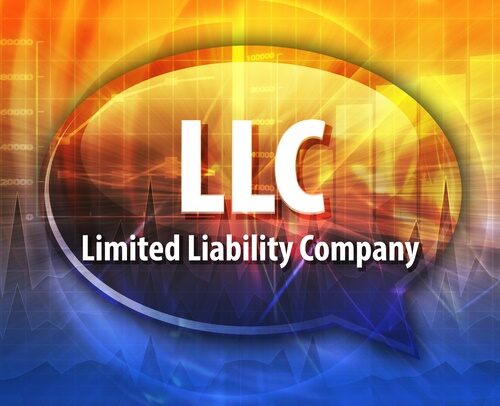A limited liability company or an LLC is a legal document that allows a business owner to not be personally liable for their company’s debts or liabilities.
An LLC does require you to fill out some paperwork with your local state government and may require completing an additional form like an operating agreement (which is necessary for some states). Overall, it’s not a terribly complicated process.
Creating an LLC can be helpful, especially when you’re just starting your business and finances are unpredictable.
It can be tricky to figure out if your company should be an LLC. Take a look at these tips below that can help you understand how an LLC works and if it is suitable for your company.

LLC benefits
LLC’s offer many benefits. Primarily it’s one of the simplest way to establish a business, making it a good choice if this is your first business.
LLCs provide great flexibility when it comes to taxation, management, and ownership. If you are a sole proprietor and are looking for retirement investing options, investing in SDIRA LLC can be beneficial. It provides you taxation benefits to save money for retirement. There are no limits on the number of owners that an LLC can have—some businesses only have one owner while others may have dozens.
Limited liability means that creditors or people who file lawsuits against your business are generally not able to collect from you personally—by going after your personal assets like your personal bank account. They are limited to collecting from your company’s assets.
An LLC normally has pass-through taxation. If the company incurs a profit, or a loss, that passes through to the owner’s personal income tax return. This is taxed on their own personal income tax rates.
If you want your business to be taxed as a C-Corporation or an S-Corporation, an LLC is helpful. This is beneficial when you’re trying to achieve maximum tax benefits.
LLC limitations
One of the big downsides to an LLC is that you can’t issue shares or stocks, making it difficult to take on investors.
An LLC has limited protection. It does not protect your assets if you personally guarantee a contract or loan. It won’t protect you from a liability due your own negligence or wrongdoing. It will not protect your business if there is a fire, flood, lawsuit, or economic downturn.
Your LLC might also dissolve based on the death or bankruptcy of one of its members, which will put you at a major disadvantage if you want to become a publicly traded company.
An LLC can be costly to form and operate compared to being the sole proprietor or having a partnership.
When is an LLC necessary?
As mentioned before, an LLC isn’t necessary for every business owner, but it is useful in many situations.
For example, if you have large contracts or creditors, that might lead to financial problems or lawsuits. An unpaid creditor has the power to cause you major personal financial trouble.
An LLC works well with having business insurance. By itself, an LLC is not guaranteed protection, but in tandem with other forms of risk management, it can be a much-needed extra layer of protection.
Whether an LLC is truly beneficial to your business lies in your situation and what you hope to achieve with your business. It can be a great form of legal protection and helps your business look more professional.
Ensure you do your research and carefully weigh your options before starting an LLC. It’s an important decision and shouldn’t be taken lightly.

Leave a Reply